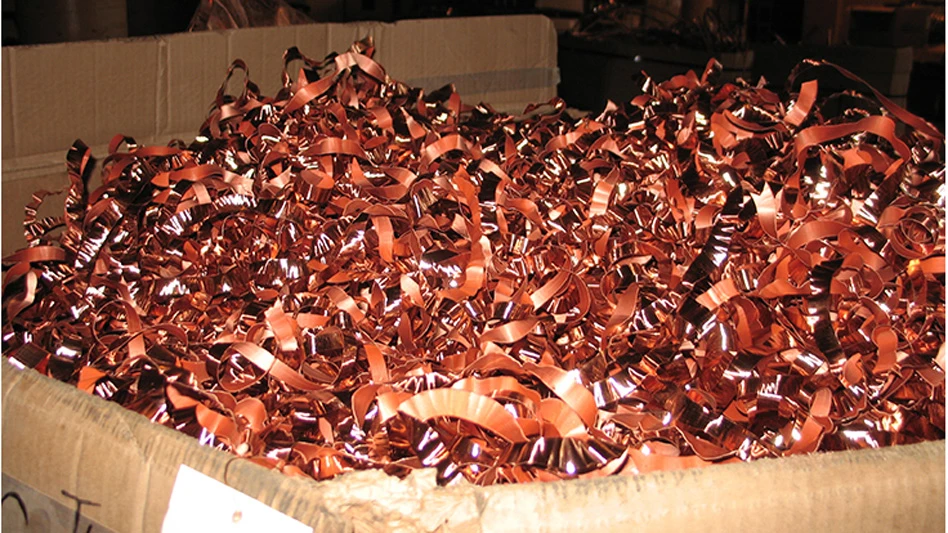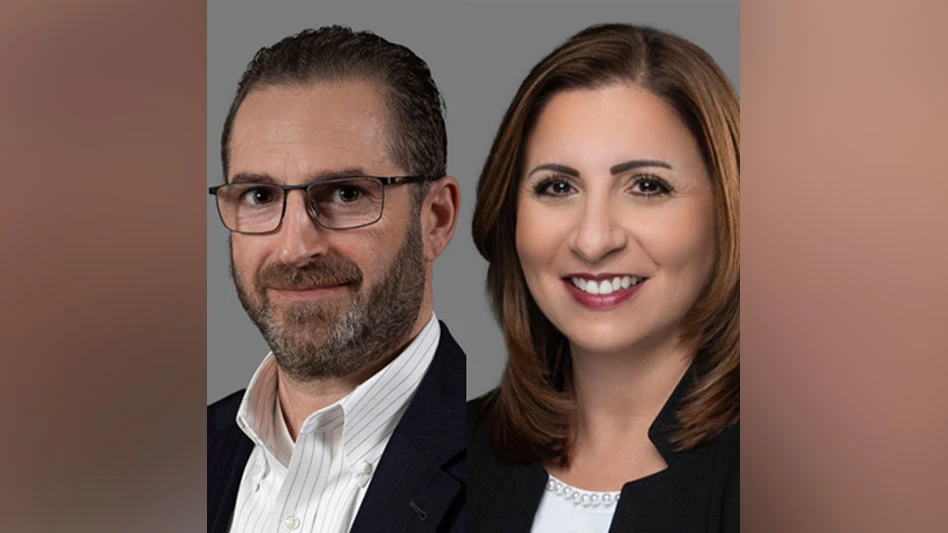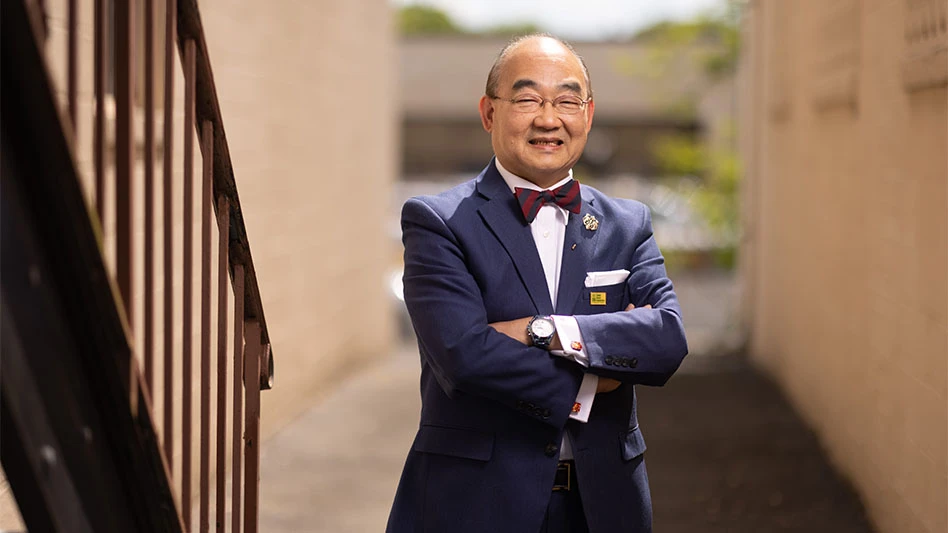
Consumer influence is an undeniable factor in many brand owners’ decisions to incorporate recycled content into their products. Dell, headquartered in Round Rock, Texas, is no different, says Scott O’Connell, the company’s director of environmental affairs.
“For us, as I look back historically [to] where we’ve been using recycled content in our products and packaging, it started with customers,” he says. “In the early 2000s, in particular in the commercial bid process and in the public sector, we started seeing recycled-content questions.”
O’Connell says Dell’s use of recycled content has been more formalized since 2007, when a system was created for providing environmental product ratings for PCs, displays, televisions and imaging equipment, such as printers, copiers, scanners and multifunction devices. Known as EPEAT (Electronic Product Environmental Assessment Tool), the system is designed to help companies and other organizations select electronics that support their IT and sustainability goals. EPEAT is managed by the nonprofit Green Electronics Council and tracks more than 4,400 products from more than 60 manufacturers across 43 countries.
Motivated by its consumers and EPEAT, Dell first began using recycled content in its desktop product line, known as OptiPlex, in 2008.
Scaling up
Back in 2008, the recycled plastic that Dell used came from polyethylene terephthalate (PET) or polycarbonate (PC) bottles. The company scaled its use of these materials across its OptiPlex product line and then across its flat-panel monitors, O’Connell says. Dell continues to use these resins recycled from these products. It refers to these materials as “traditional recycled-content plastics,” O’Connell says, because they are used in a number of products ranging from bottles to clothing to electronics.

In 2014, Dell launched its closed-loop recycled plastics supply chain, he says, with the goal of returning plastics from end-of-life electronics into new electronic products. In this way, O’Connell says, the company is “moving toward a true circular economy for technology with real benefits to customers and the planet alike.”
In 2013, Dell set a goal of using 50 million pounds of recycled plastics in its products by 2020. As of the end of 2016, the company already had achieved that goal, O’Connell says. “Now, we are looking actually at resetting the 2020 goal so that it is much more aggressive,” he says, adding that when Dell set the original 2020 goal, it was just starting to experiment with its closed-loop program and wasn’t sure how quickly it could be scaled across its products. “Fortunately, we were able to grow that pretty significantly over the 2014-2016 time frame.”
O’Connell says the company sought validation from UL Environment, an organization that confirms recycled-content claims, to certify that Dell’s plastics recycling content was truly closed loop. According to Dell, the OptiPlex 3030 is the first product certified by UL Environment to its closed-loop standard, meaning that at least 10 percent of the product is made from closed-loop plastics.
The volume of closed-loop plastics Dell consumes is greater than that of the traditional recycled-content plastics, he says. “On an annual basis, 35 percent of all the plastics that we are using are recycled content. Of that, 31 percent is from closed loop.”
More visibility
Dell continues to grow the proportion of closed-loop plastics it uses versus traditional recycled-content plastics for a number of reasons, O’Connell says. “One is that we have more visibility into the incoming material that goes into that feedstock because it is coming from our takeback electronics recycling program and it tends to be more of a straight ABS (acrylonitrile butadiene styrene) plastic from old electronics into an ABS for new electronics. We can get a slightly higher percentage of recycled content in those resins than we can in traditional PCR (postconsumer recycled) [resin].”
“On an annual basis, 35 percent of all the plastics that we are using are recycled content. Of that, 31 percent is from closed loop.” – Scott O’Connell, Dell
The company’s closed-loop program begins with Dell Reconnect, an electronics recycling program managed by Dell and Goodwill Industries International Inc. that was launched in 2004 in Austin, Texas. The program accepts old computer equipment of any brand at more than 2,000 participating Goodwill locations throughout North America.
“Where possible, Goodwill will refurbish and resell used electronics through that program. Those that cannot be refurbished or resold and are truly end of life go into what we call our environmental partner network,” O’Connell says. “Those are the contracted asset-recovery and resale companies that we work with. Wistron GreenTech is one of those partners, and they are the one that actually has the capability of doing the closed loop because they have both the asset-recovery service here in Texas but also have a plastics refining operation in China,” he says.
Wistron Corp., a contract recycler based in New Taipei City, Taiwan, segregates and bales plastics collected at its McKinney, Texas, facility, and sends the recovered materials to its facility in Kunshan, China, where the plastics are further segregated by resin type. In the U.S., the company is known as Wistron GreenTech Corp. Materials that are sent to partners other than Wistron are recycled, though not necessarily returned to Dell as part of the closed-loop recycling program.

O’Connell says that because the Dell Reconnect program accepts electronics from all manufacturers, the plastics used in the devices vary considerably, as do the additives and coatings they contain.
Dell is looking at reducing the diversity of the plastics that it uses in its products, O’Connell says, adding that this would help to reduce the variables on the recycling side. He’d also like to see other manufacturers embrace this approach, possibly creating some industry standards around this area through collaboration.
Wistron recycles ABS plastics, producing pellets that are then used in new Dell products, he says.
O’Connell says Dell has been able to scale up Dell Reconnect and its closed-loop recycling program in the U.S. and is interested in replicating this success in Europe and Asia. “The infrastructure is still developing in some of these areas,” he says.
Regardless of where in the world these plastics are collected, they likely will end up in Asia at some point, O’Donnell says, as that’s where the molders for these parts are located.
Wistron has been a long-time original design manufacturer (ODM) partner of Dell’s on the production and manufacturing side, he says. “They came to us in 2013 and said they saw opportunities with closing the loop with plastics, metals and other components. We had lots of discussions, site visits and R&D going into how we could make this work for both parties. They were the ones who brought the innovation to the table as far as the plastics refining, as well as the capabilities of doing the recovery and recycling here in the U.S., so it was really a natural fit to work with them and extend that relationship from an ODM and now an asset-recovery and resin supplier to us.”
Challenges overcome
O’Connell says bringing the closed-loop recycling program to light at Dell represented the first time the company brought together its full manufacturing supply chain. “Bringing those different stakeholders and groups around the table was pretty unique,” he says. “Sometimes those groups operate in their own silos. We can use that same framework to address other opportunities in recycling as they come up in the future.”
“A perception that we had to overcome was that recycled content sometimes equals lower performance or [has] cosmetic issues.” – Scott O’Connell, Dell
One area of the supply chain where Dell met with resistance, O’Connell says, was from engineering. “A perception that we had to overcome was that recycled content sometimes equals lower performance or [has] cosmetic issues,” he says.
A number of trials helped to prove that the closed-loop recycled material was equivalent to or better than material that had been used in the past, O’Connell says. That’s because the closed-loop plastics already had the properties required for Dell’s applications, whereas virgin materials might not have been expressly manufactured for those purposes.
“I think we broke down some of those preconceived ideas of what recycled content is, because I think historically they thought of recycled content as less than, or more expensive than [virgin material]. Procurement certainly was concerned about that. But I think by addressing the engineering concerns and bringing all of the different stakeholders around the table, we were able to address these concerns.”
In case all of this sounds easy, O’Connell is quick to point out that it was not. “It takes time, it takes buy-in and it definitely takes a lot of collaboration.”

O’Connell admits that virgin material is still slightly less expensive than any form of the recycled-content plastics that Dell consumes. However, because of the interest the company sees in recycled content through EPEAT and its customers, he says Dell instead compares the cost of traditional recycled-content plastics with the cost of its closed-loop plastics, and those are at parity. “We have been able to drive cost parity between those two forms of recycled-content plastics,” he says. “That is also how we have been able to scale the closed-loop plastics from a small volume to being 31 percent of the mix.”
O’Connell says Dell would love to see more electronics manufacturers embracing recycled content to help drive market demand and volume. With additional scale, he says, the cost of recycled resins could be reduced.
For more information: Dell, www.dell.com, 866-931-3355
Explore the June 2017 Plastics Recycling Issue
Check out more from this issue and find your next story to read.
Latest from Recycling Today
- Nexwaste acquires 3 Texas businesses
- Maryland EPR bill awaits signature
- ABTC sells Fernley, Nevada, property
- Aqua Metals developing LFP recycling process
- RMR ceases shredding operations in Newport, Kentucky
- Bluewater streamlines solar panel replacement, recycling in Bermuda
- Steve Levetan to receive ReMA Lifetime Achievement Award
- ReMA, Germany’s VDM issue joint tariff statement





